Beyond Politics: Labour Market Status in Wales
14 November 2023Wales Fiscal Analysis has brough together a report using various data sources to show the reality of the labour market in Wales and how economic shocks affect the nation. Analyses that are often carried out in isolation are included, such as labour market headline figures, gender differences, ethnic and country of origin differences, and higher education data. They show the connections between these factors, and how systemic differences mean that economic shocks impact individuals in varied ways, according to their gender, age and a host of other factors.
Earnings and Incomes
We confirm that incomes in Wales are skewed towards the lower end of the income tax base compared with England and Scotland. Of the 52% of the Welsh population paying income tax, the vast majority – 93% – pay income tax only between the basic rate tax thresholds of £12,570 and £50,270 per year. Among the top-earning ten percent of taxpayers in 2022, men earned an average income of £54,363 and women, £49,985.
In contrast to the 2008 recession, which caused deep unemployment and large reductions in incomes earned at the higher and additional rates, concerted government responses such as the furlough scheme and business support grants meant that personal earning instabilities during the Covid-19 pandemic were not as severe or discernible as they were in the aftermath of the previous global financial crisis. Importantly, there were clear gender differences here, with women more likely to be in lower-paying positions, but also positions that were furloughed.
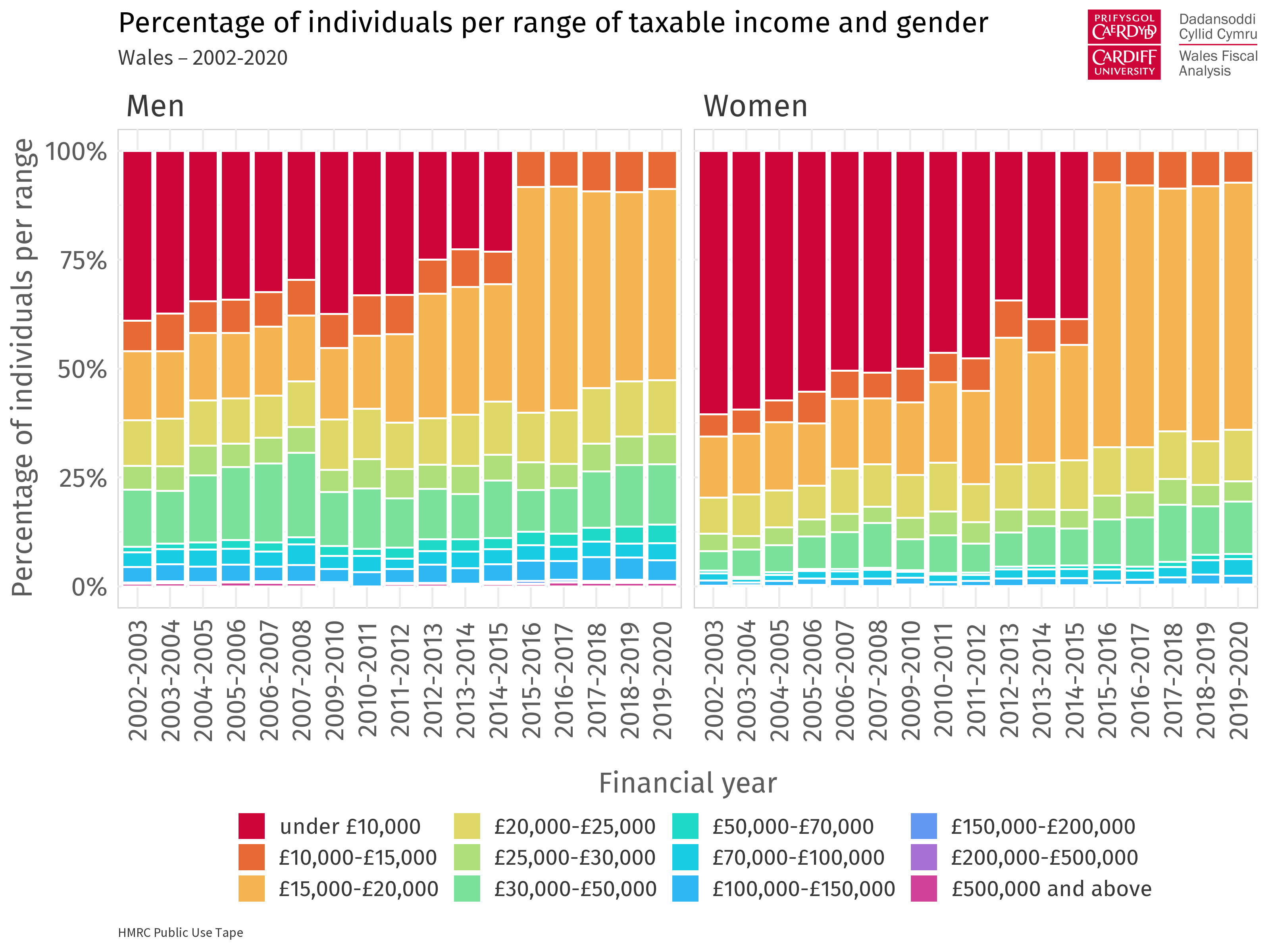
Use of the Public Use Tape does not imply the endorsement of HMRC in relation to the interpretation or analysis of the information. Opinions, findings, conclusions or recommendations expressed in the paper are those of the authors and do not reflect the view of their respective organisations.
Economic Inactivity
Post-pandemic, there has been a heavy focus in public debate on economic inactivity and its implications for productivity. Rather than a significant difference in economic inactivity rates, we have found that the reasons for it have changed, with more men being inactive due to illness. Caring responsibilities are more prevalent among ethnic minorities and women and being a full-time student more frequent among men. Retirement is more likely to be stated as reasons for economic inactivity for men and those in those of white ethnicity.
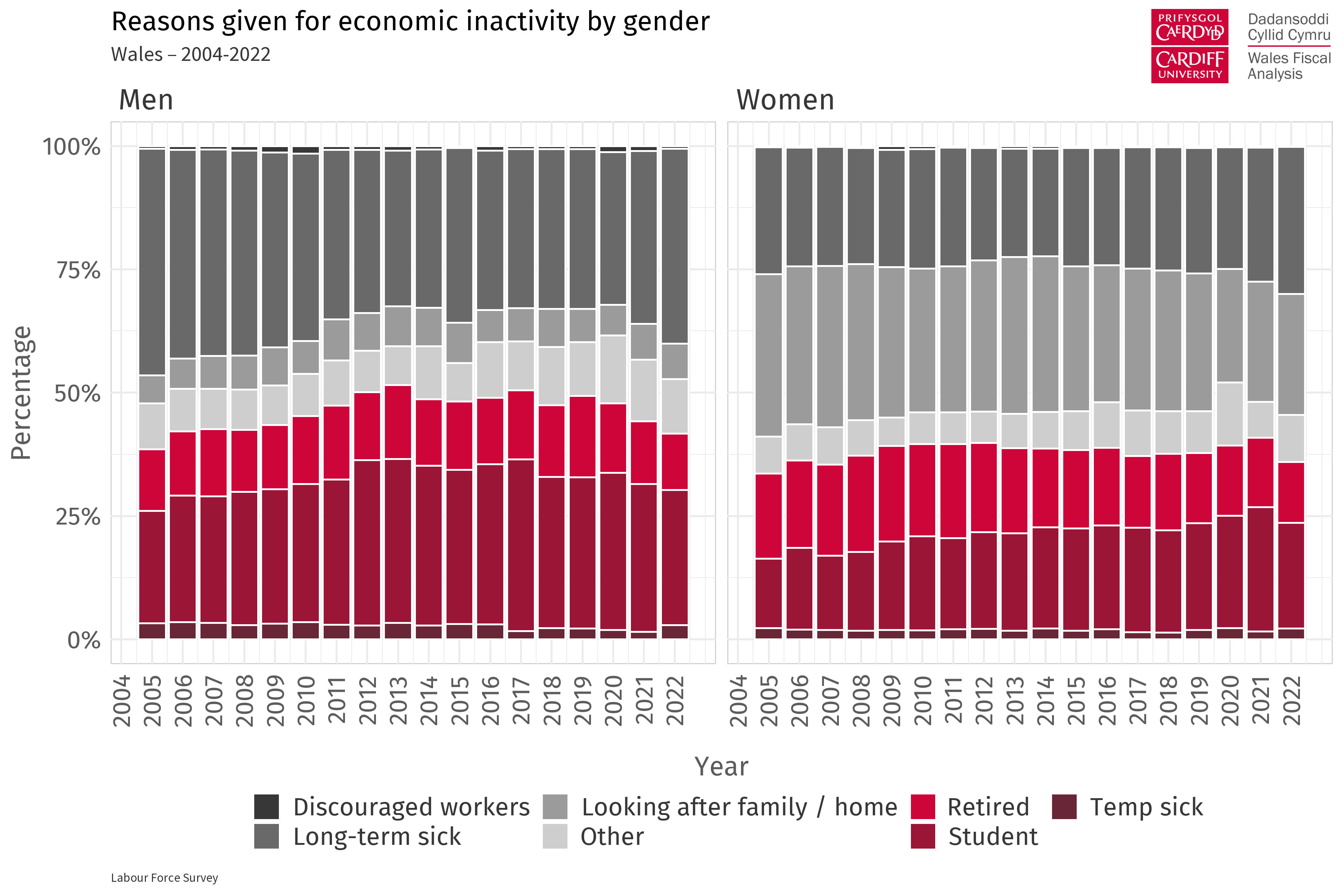
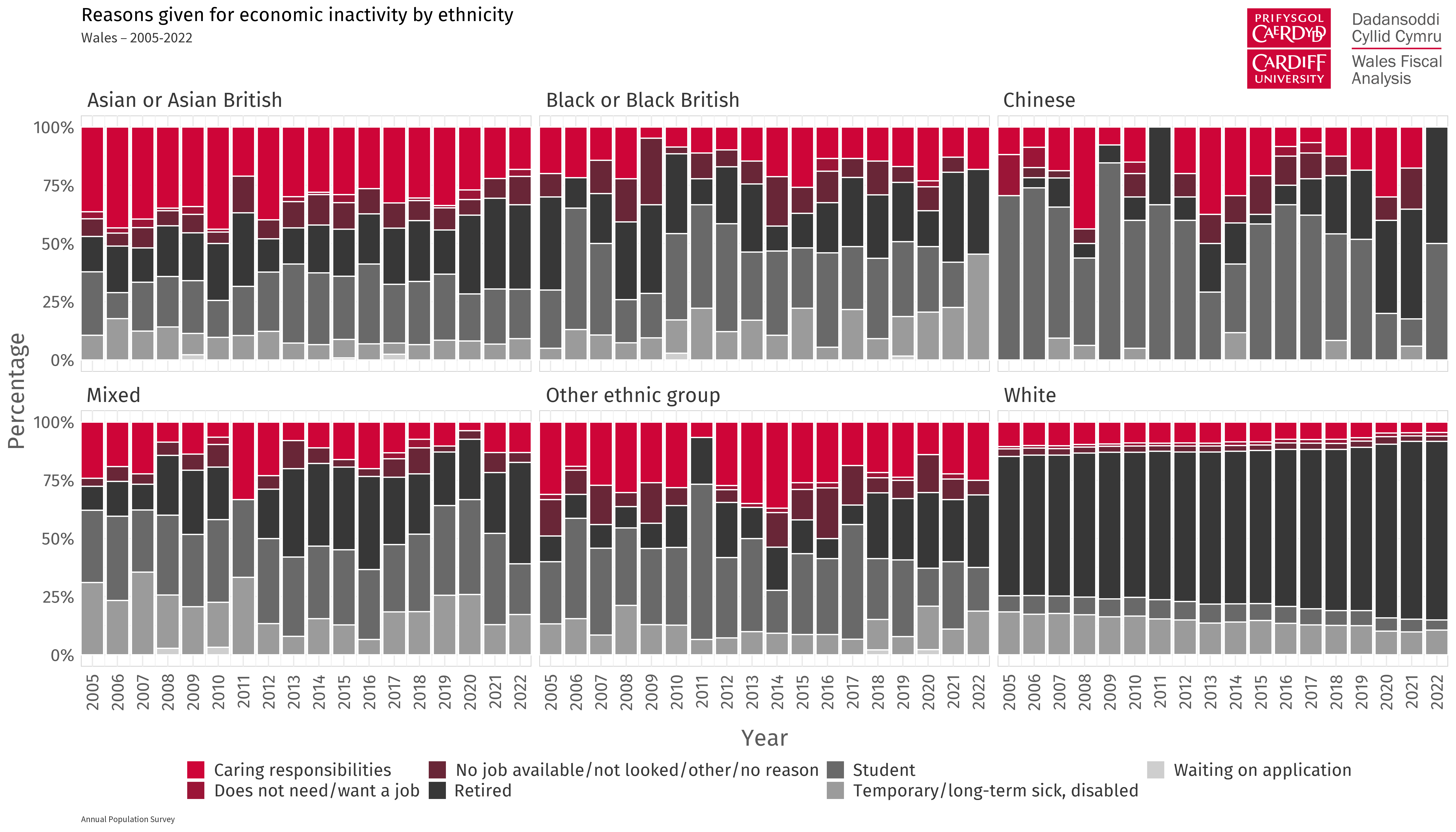
Income and decision-making
Women’s incomes vary comparatively little over their lifetime, while men’s incomes increase considerably as they age. Men’s median earnings were particularly affected by the 2008 economic recession. Following a sharp decline after this recession, men’s income levels stabilised but have not returned to their pre-recession peak.
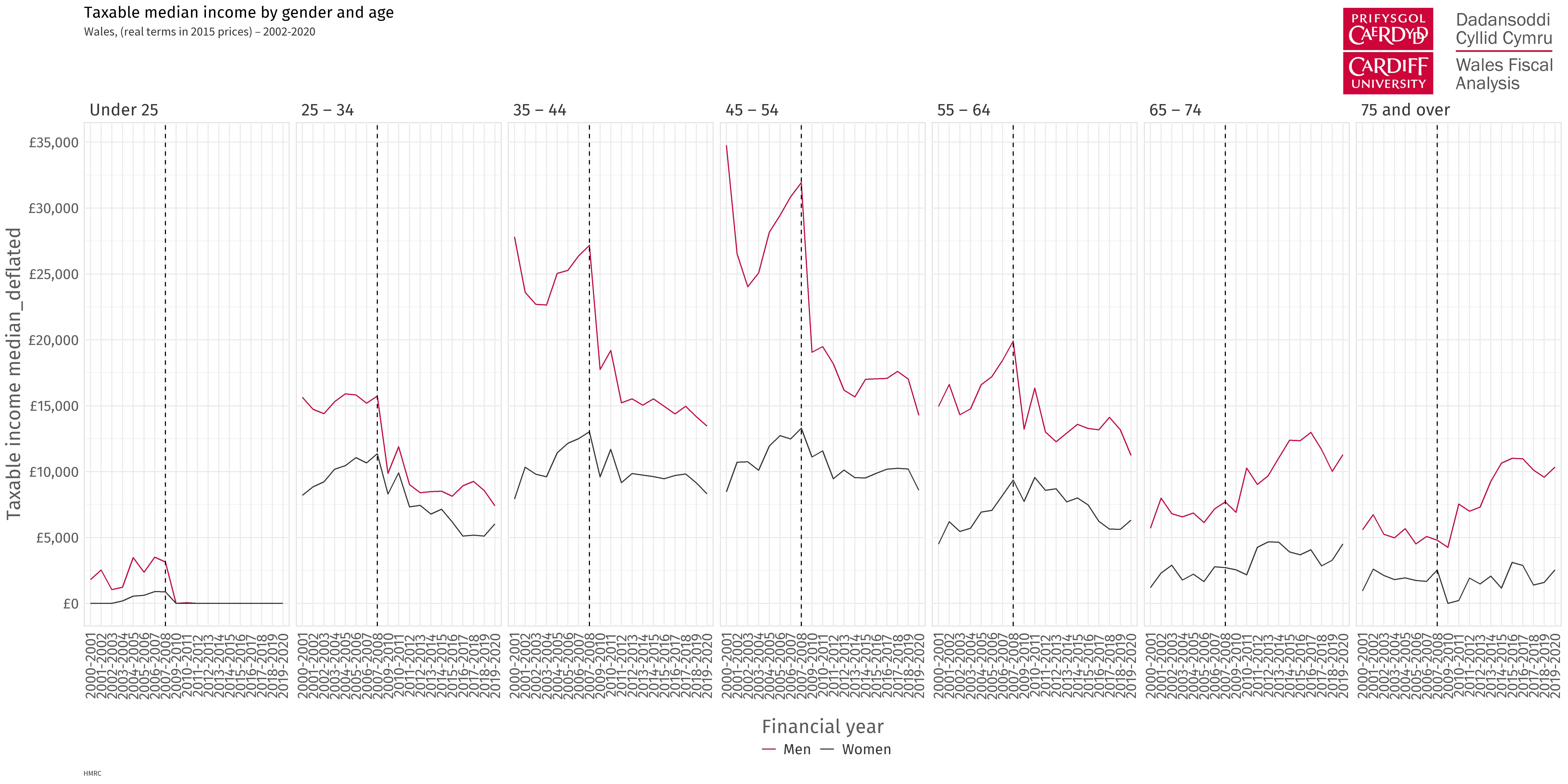
The results indicate that due to women’s care responsibilities and increased employment vulnerability, it appears they plan employment decisions on a longer-term basis and are less likely to deviate from these plans as a result of sudden economic shocks. Men seem more likely to make their decisions based on the economic context at the time. Men increased their presence in full-time education, part-time work, and caring for the household during previous economic downturns but tend to shift more decisively back into full-time work once the economic context permitted.
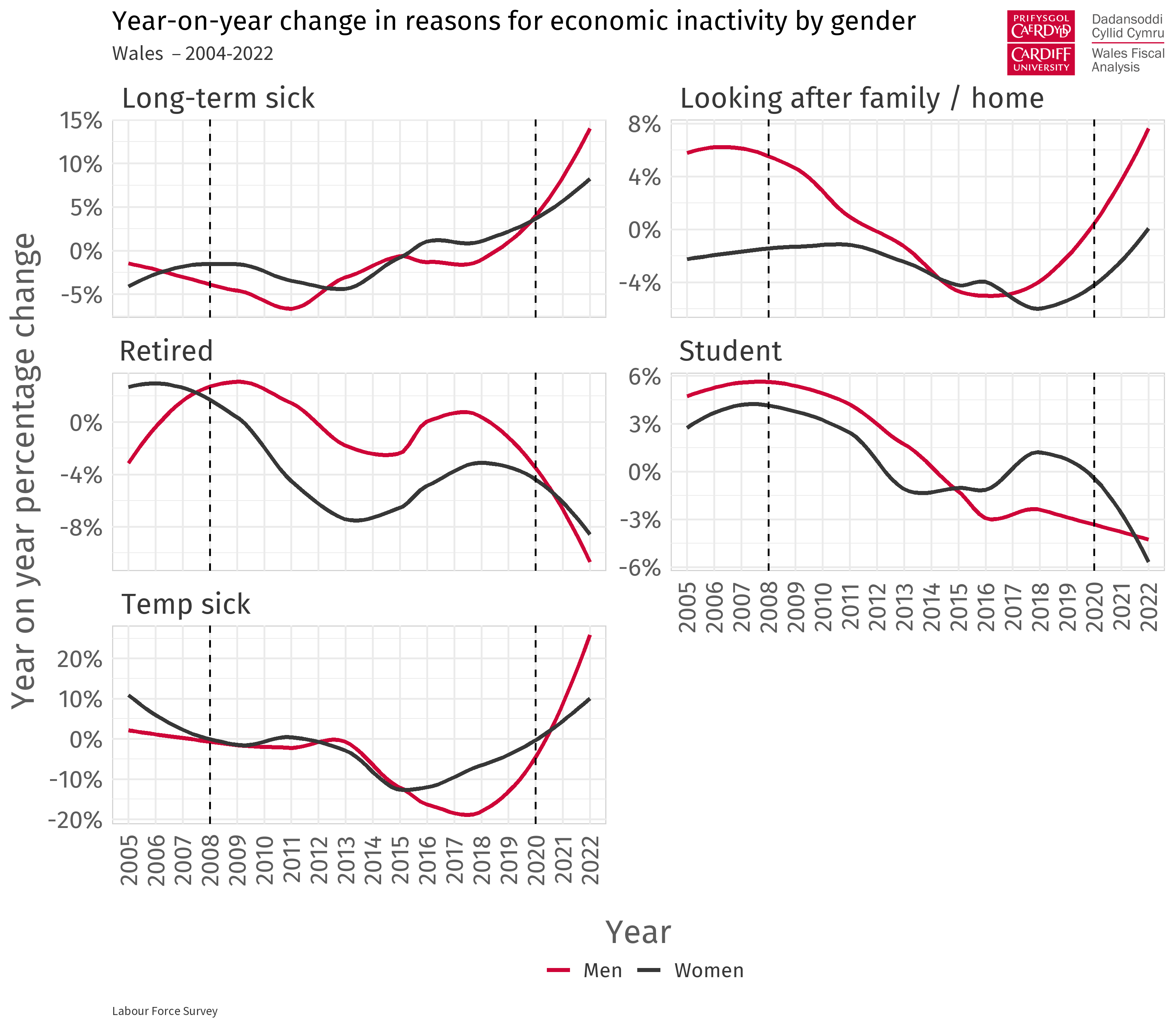
In Wales, economic inactivity seems to be lower for Asian or Asian British ethnicities and those of mixed ethnicities. Over the past two decades, levels of inactivity for white ethnic groups have increased relative to other ethnic groups.
The post-2008 recession period had a very significant impact on decisions regarding education and skills for most groups; this did not occur to anything like the same extent in the aftermath of the Covid-19 pandemic.
Finally, ethnic pay gaps currently give no cause for optimism. Although data availability does not allow definitive conclusions to be drawn, these gaps are associated with greater vulnerability in employment among ethnic minority groups.
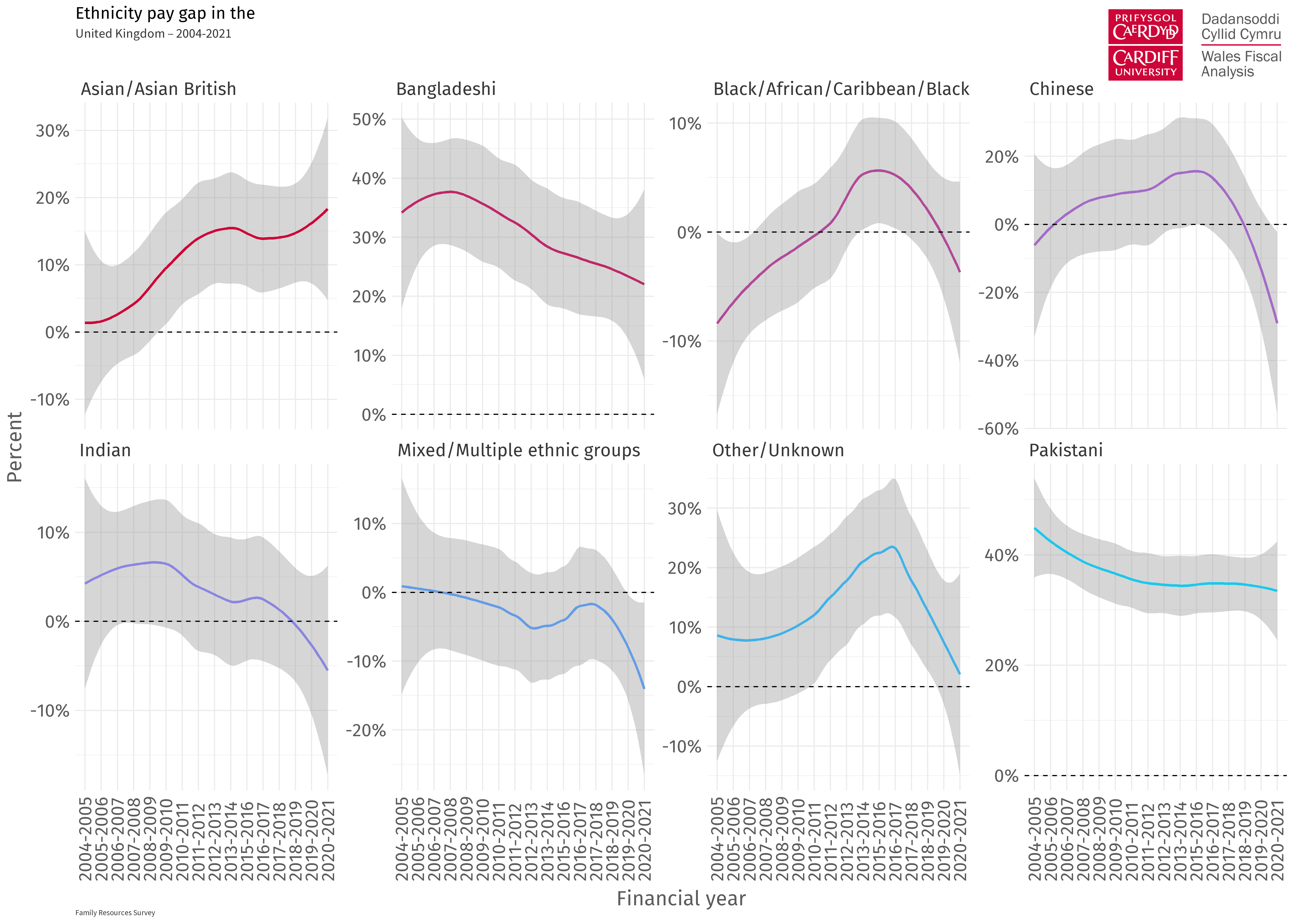
Data Issues
The weakness of available data when studying the Welsh labour market and Wales in general must be highlighted. Wales is dependent on UK-wide data collection that often samples the nation as a region of England and Wales rather than a separate statistical entity as it does with Scotland and Northern Ireland. This often results in under-sampling (when the data exists at all) which makes studying labour market trends at local authority level difficult, if not impossible. Irregularity in collection and publication of data also decreases reliability. Finally, there is currently no official data available for LGBTQI+ groups’ participation and presence in the labour market.
Conclusions
The briefing aims to be a holistic image of the status of the Welsh labour market, which is often subjected to policies determined by Westminster. Those policies impact real people, who are struggling to find suitable positions, who are working more than one job to make ends meet, who are going to university part-time in search of better opportunities, who cannot afford childcare. For example, the end of the cap on bankers’ bonuses endangers once again the British economy as this was a decision made to prevent another crash like the one in 2008. In the meantime, individuals are dragged to higher income tax brackets without an appropriate increase in their wages.
We hope to bring an improved understanding of who Welsh workers are, their areas of work, and the obstacles they face.
Read the full report here.
- December 2025
- November 2025
- October 2025
- September 2025
- June 2025
- May 2025
- March 2025
- February 2025
- December 2024
- October 2024
- September 2024
- July 2024
- June 2024
- December 2023
- November 2023
- August 2023
- February 2023
- December 2022
- November 2022
- September 2022
- July 2022
- April 2022
- March 2022
- January 2022
- October 2021
- July 2021
- May 2021
- March 2021
- January 2021
- November 2020
- October 2020
- August 2020
- July 2020
- June 2020
- May 2020
- April 2020
- March 2020
- October 2019
- September 2019
- June 2019
- April 2019
- March 2019
- February 2019
- December 2018
- October 2018
- July 2018
- June 2018
- April 2018
- December 2017
- October 2017
- July 2017
- June 2017
- May 2017
- April 2017
- March 2017
- February 2017
- January 2017
- December 2016
- November 2016
- October 2016
- September 2016
- Bevan and Wales
- Big Data
- Brexit
- British Politics
- Constitution
- Covid-19
- Devolution
- Elections
- EU
- Finance
- Gender
- History
- Housing
- Introduction
- Justice
- Labour Party
- Law
- Local Government
- Media
- National Assembly
- Plaid Cymru
- Prisons
- Reform UK
- Rugby
- Senedd
- Theory
- Uncategorized
- Welsh Conservatives
- Welsh Election 2016
- Welsh Elections